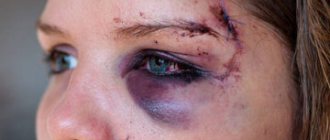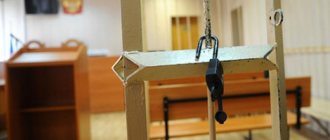Police officers receive messages from citizens reporting incidents, crimes and offenses, and requests for help. There are all kinds of phone calls. Starting with the fact that a theft has been committed somewhere and ending with the fact that the keys to the apartment are lost and you need help finding them. But often the police receive messages from those who like to joke. The Department of the Ministry of Internal Affairs of Russia for the Kalininsky District warns: false statements to the police about crimes entail liability within the framework of established criminal and administrative legislation.
According to Article 19.13 of the Code of Administrative Offenses of the Russian Federation, “Knowingly making a false call to the fire department, police, ambulance or other specialized services” entails a fine of 1,000 to 1,500 rubles.
It is necessary to understand that a deliberately false call and an erroneous call are different concepts. If, while walking down the street, you see a person lying motionless in the snow and showing no signs of life, then you urgently need to inform the police and ambulance.
There is another offense: false report of an act of terrorism (bomb threat). Each such message is carefully checked. If such a message turns out to be false, the caller will incur criminal liability under Article 207 of the Criminal Code of the Russian Federation - a knowingly false message about an impending explosion, arson or other actions that create a danger of death, causing significant property damage, or the occurrence of other socially dangerous consequences.
Schoolchildren often provide this information. What's in this case? According to Article 2.3. Only a sane person who has reached the age of sixteen at the time of committing an administrative offense can be brought to administrative responsibility of the Code of Administrative Offenses of the Russian Federation. According to Article 87 of the Criminal Code of the Russian Federation, persons over 14 years of age bear criminal liability.
In cases where an administrative offense was committed by a teenager under the age of 16, and a criminal offense under the age of 14, there is no liability, and the case is referred to the commission on juvenile affairs, which applies educational measures to teenagers. In addition to these measures, the parents of a minor offender for failure to fulfill the duties of maintaining and educating minors (Article 5.35 of the Code of Administrative Offenses of the Russian Federation) are brought to administrative responsibility. Administrative liability implies a warning and a fine. And teenagers are registered with juvenile affairs units.
Summarize. A false call to the police can affect ordinary citizens: instead of going to the place where help is needed, security services are forced to be distracted by a false call and waste valuable time. A person could die because of such a “joke.”
False police call: fine size, consequences and reviews
Many people know the police phone number from early childhood. Employees of this service are able to provide assistance to any citizen who reports an incident, crime or illegal actions. In all these cases, the police officer is obliged to respond. And if this is a call, then go to the place where the violation was recorded.
Depending on the size of the settlement, the number of calls to the 102 service can reach several thousand per day. All of them are accepted equally responsibly. Many of them require the dispatch of a squad or the involvement of other emergency services. But do all of them really require attention?
What is a false police call?
A person’s life can often depend on the timeliness of calling authorities and services like the police. We hear all the time about vigilance and the need to inform authorities about certain cases. But cases of false calls to the police are not uncommon.
In this case, you need to know that such incidents can be classified as follows:
- knowingly making a false call to the police;
- unintentional call.
And if the first one is indeed a violation, then the second one is not so simple.
The concept of knowingly false denunciation under Article 306 of the Criminal Code of the Russian Federation
Denunciation is understood as a message about criminal behavior, which is sent to the authorities carrying out the inquiry or preliminary investigation.
Denunciation can be expressed in any form, for example:
- orally;
- by writing a written statement;
- by sending an anonymous request.
The main thing is that such a message should be false. The falsity of a denunciation is understood as a report of an action that in reality did not occur. A denunciation that points to a person who did not commit the crime will also be false.
The falsity of a denunciation is understood as a report of an action that did not actually happen.
A citizen will not be held criminally liable if he did not know and could not know about the falsity of his denunciation, if he really believed that the criminal had committed this or that act and was guilty of it.
Important! A person who has reached the age of sixteen can be charged with knowingly false denunciation (LD).
The circumstances surrounding the denunciation are of particular importance. Responsibility becomes stricter when there is an accusation of committing a serious crime, as well as when the informer attaches evidence artificially created by him.
Possible penalties for this act, according to the Criminal Code, may include a fine, various types of work and imprisonment. In addition, moral damages for libel may be recovered in civil proceedings. The procedure and rules for performing this action are provided for by the Civil Code of the Russian Federation.
False call: reinsurance
There are situations when a person believes that he or someone nearby is really in danger. By reporting this to the police, he is not essentially committing a violation. These are the types of challenges we see most often. They are reinsurance and most often do not attract money for them.
Such calls include all reports of terrorist attacks that were subsequently not confirmed. People report packages abandoned in transport and public places, suspicious persons or circumstances. It is clear that punishing people in such circumstances can achieve the exact opposite reaction. Such messages will completely disappear, and then, perhaps, the police will find out about the actual terrorist attack too late.
How is the culprit of the violation identified?
Do not think that the culprit of a false call to the police is difficult to identify. Even if the cell phone has the function of prohibiting number identification, the forwarding or call is made through an independent contact - a call center (these are the same services through which many citizens receive advertising offers on cell phones. Both individuals and individuals can use their services and receive an anonymous number and organizations).
All police units whose work is related to receiving calls are equipped with caller ID and recording equipment. If it is impossible to determine, the request can be sent to the telephone company, which has all the information on calls in full.
How to make an application
They draw up a document in free form and address it to the territorial police department at their place of residence. The statement should:
- describe in detail the unreliable facts of the crime;
- indicate the motives that guided the informer;
- list evidence of innocence;
- state a request to conduct an inspection and prosecute the attacker under Art. 306 of the Criminal Code to criminal liability.
A sample application relevant in 2022 can be downloaded below. It is necessary to provide law enforcement agencies with as much evidence as possible of non-involvement in the alleged crime.
Download a sample statement of a knowingly false denunciation to the police
The application can be submitted in person, sent by mail with acknowledgment of receipt, or sent through the Ministry of Internal Affairs website. The employee who receives the message is obliged to issue a document against signature, which indicates the date, time and information of the person who received it.
After registering the appeal, the inquiry authorities check the information received, and based on the results of operational investigative actions, no later than 3 days later they make a decision to initiate a case under Art. 306 of the Criminal Code or refusal. The applicant has the right to appeal the decision of the investigative authorities in court.
False police call: what the violator faces in 2022
The police are often called out of a desire to joke with a friend, prank a relative, or annoy neighbors. After the first day of September, the number of reports of terrorist attacks in schools, arson of student dormitories and institute classrooms sharply increases.
All such actions are intentional and are an administrative offense, according to the article on false calls to the police and other emergency services No. 19.3 of the Code of Administrative Offenses of the Russian Federation. After learning the amount of the punishment, some may laugh. Today, this is no more than the amount that is given to schoolchildren for lunch in some Russian cities for a couple of weeks. After all, the fine for a false call to the police ranges from 1 to 1.5 thousand rubles.
However, such a violation can be viewed from a slightly different angle, using criminal articles. What will be the punishment for falsely calling the police in this case?
Changes to the Code of Administrative Offenses
Since June 2022, a bill has been introduced to the State Duma to change the sanctions for false calls to emergency services. Deputies propose increasing the fine to 3 thousand rubles and introducing an additional punishment in the form of 100 hours of compulsory labor. It is also planned to introduce liability for repeat offenses. In this case, the amount of the fine will increase to 5 thousand rubles, and the period of compulsory work will increase to 200 hours.
The document is currently under discussion. Most likely, the amendments will be adopted, since the need to tighten punishment for such an offense has been long overdue.
On what basis can the punishment be increased?
An additional factor influencing the increase in the severity of the violation is the reason for the call itself. So, for example, a neighbor who declared that arson was committed in a neighboring apartment will receive a fine for falsely calling the police in the amount of 18 months’ salary and up to 200 thousand rubles. Alternative punishment will not please him either - correctional labor or restriction of freedom.
If a student decides to make a joke by saying that the institute has been mined, and people get hurt during an emergency evacuation, the fine will increase even more. This already amounts to a salary for a period of 18 months to three years or an amount of up to 1 million. The period of restriction of freedom also increases; correctional labor is not provided for in this case. All this is regulated by Article 207 of the Criminal Code of the Russian Federation.
In what case can you avoid punishment?
Police officers warn telephone hooligans that today it is very easy to establish their identity and location, thanks to modern technology.
But the most important thing is something else: the police spend time and money on responding to a false call. It happens that at the same time you need real help in another place, but there are no outfits. Because of a telephone hooligan, real trouble can happen, and in this case, a false call can literally cost someone their life.
| Did not find an answer to your question? Call a lawyer! Moscow: +7 (499) 755-83-41 St. Petersburg: +7 (812) 917-23-31 |
What is the punishment for the offender who is a minor?
In order for articles of the Criminal Code to be applied, the offender must be over 14 years of age. This is established by Article 87 of the Criminal Code of the Russian Federation. You can be brought to administrative responsibility from the age of 16. Up to these age levels of citizens, the responsibility for falsely calling the police on their prankster child lies with his parents.
Teenagers are registered with specialized departments, and educational work is carried out with them. But the parents will already have to carry out an administrative punishment, which will be issued on the basis of Article 5.35 of the Code of Administrative Offenses of the Russian Federation. In this case, the fine will be formed not only from the established fixed amounts. This may include all travel expenses of services.
In addition, private lawsuits are also possible. For example, some of the visitors to the object mined by the child became ill, so much so that hospitalization was required, and some were unable to get to work. In this case, the parents will have to compensate the costs and moral damage to the victims.
How is the evidence base compiled in a false call case?
The first evidence will be a recording of the conversation between the caller and the police officer. All calls are not only detected, but also recorded. In this way, not only the information presented by the caller is recorded, but also the correctness of the police officer’s reaction, his competence and correctness in relation to citizens.
After identifying the falsehood of the call, the joker will have to explain in writing the reasons for his call. If at the same time he himself says that he committed this action as a joke or to annoy someone, then the evidence is clear. In addition, witness statements are collected. If the call was about neighbors, then the district police officer will contact them to collect data.
In the case of reports of terrorist attacks and arson, even more testimony will be collected, and the joker himself will be examined for sanity. And in that case, the jokes will stop.
What should you do if you are still punished for an unintentional false call?
There are cases when an unintentional call can have serious consequences. In this case, if there is indeed evidence that the caller is not guilty, you can challenge the charges brought in the courts.
For example, when calling the police to the scene of a fight, the caller cannot be sure that the fighters will still be in place when the squad arrives. Even after hearing the sounds of a woman clearly being murdered from a neighboring apartment, it is impossible to say with certainty whether something like that is really happening there.
Therefore, before dialing the coveted number, it is worth realistically assessing the visible or audible danger. Decide with a calm head and a sober mind whether there really is a threat to life. And that’s when you make the call.
The application of sanctions in the event of an unintentional false call occurs extremely rarely. This is one of the most unpopular measures. Because in this way citizens can be “discouraged” from reporting violations that do not directly affect them.
After all, then people will definitely pass by any fights, parents beating their children, robbers taking everything they have from the next apartment. Most people will turn a blind eye to a pedophile looking at children in the park, or guys dragging a reluctant girl into a gateway.
Judging by the reviews, almost always such calls are not formalized even as an administrative offense.
How to call emergency services correctly
In order to avoid being fined for a false call, you should understand in what cases and for what reason you need to call specialized services.
To the police
When calling from a mobile phone, you must dial the number 102 or the single emergency services number 112. For the Megafon company, this number is 020. You can contact law enforcement agencies in all cases where a citizen has become a witness to illegal actions or a victim. The following situations may be the reason for your request:
- public order disturbance;
- fighting or assault;
- damage to private or public property;
- theft;
- violation of the law on silence;
- drinking alcoholic beverages in a public place;
- prolonged absence of neighbors, accompanied by an unpleasant smell from the apartment;
- the presence of unauthorized persons in the attic of the house or in the basement;
- abandoned vehicles abandoned near residential buildings;
- inspection of apartments by suspicious persons who introduce themselves as employees of social services;
- neighbors sell drugs or alcohol.
The police squad must arrive at the specified location within 10 minutes.
Important! A witness to illegal actions is not required to be at the scene and wait for the police to arrive.
To the ambulance
All mobile operators have a single number for calls – 030. An ambulance can be called in the following cases:
- acute illness that occurred at home, in a public place or on the street;
- accident involving injury;
- sudden disruption of the cardiovascular system, respiratory system, central nervous system;
- disruption of the course of pregnancy at any stage;
- acute mental disorder that threatens the lives of others and the patient himself;
- to children under 1 year of age for any reason.
The caller must clearly state the patient’s first and last name, age, detailed address, and describe the symptoms. If doctors are called to see a stranger, gender and approximate age should be indicated. The ambulance team must be met and provided with access to the patient.
To the fire service
From mobile phones you should call 101 or 112. You must inform the dispatcher:
- the exact address of the fire site so that employees know where to go if communication is unexpectedly interrupted;
- object of fire: apartment, garage, private house, car;
- clarifying details: number of floors in the building, presence of people in the burning building;
- Full name and contact phone number of the caller.
After the call, you need to wait for the firefighters to arrive and show the way, if necessary.
It is important for citizens to remember that they should not call emergency numbers for the sake of self-indulgence. You should make sure that calling an ambulance or fire brigade is really necessary. Parents should remind their minor children of this more often so that they do not become delinquents through their own stupidity. At the same time, you should distinguish between a false and an erroneous call; sometimes it is better to play it safe and call the police or ambulance.
The cost of a false call is a fine and compensation
The cost of a false call is not only the price of fuel for cars, payment of police officers for the time they were on the road in response to such a call, the cost of bringing operatives, search dogs and other components. First of all, this is time that authorities could spend on helping where it is really needed. Quickly go to the scene of a fight, have time to save a woman from a drunken husband with a knife, and find a runaway child.
The cost of a false call is measured not in money, but in lives saved. The police, no matter how much negativity ordinary citizens throw at them, do a very important job. The lives, inviolability of the rights of these same citizens and the safety of their property may depend on the timely and correct actions of employees.
Types of False Police Calls
It is difficult for a dispatcher to determine over the phone whether he is hearing the truthful information. Each specialized service does not have the right to ignore a call and is obliged to respond to absolutely all calls. It is unacceptable if upon arrival it turns out that the reason for the call is a fraud.
In judicial practice, a false call to the police is defined in two types:
- Intentional in advance - a citizen, calling the emergency service, reports deliberately deceptive information over the phone that has no relation to reality, and upon the arrival of the police observes what is happening. There are false calls made with the aim of causing inconvenience to neighbors or acquaintances with whom there is enmity.
The legislation provides for several types of punishments for deliberately contacting a specialized service for the purpose of deception. They are regulated by Article 19.13 of the Administrative Code. violations.
Characteristic signs of an offense
The legislation considers fire protection, police, emergency medical care, and other services for combating crime and property protection, for example, private security, to be specialized services.
Criminal acts consist of communicating knowingly false information to a special service dispatcher in order to call them to the scene of an incident. They commit an offense intentionally, most often for hooligan reasons. The criminal, as a rule, is aware of the illegal nature of his actions and their negative consequences.
But if a citizen was convinced of the need to call the special services as a result of deception or misconception, administrative liability does not arise.
False calls usually come in several types:
- Wrong call. This can happen when a person sees smoke or smells gas and calls emergency services without confirming that there is an actual fire or leak.
- Report of an imaginary incident. In this case, the attacker may call the police or ambulance, for example, out of a desire to take revenge on neighbors or resolve a domestic conflict.
- Just a prank. Most often, such calls come from teenagers or children who are having fun in this way; in fact, this is ordinary hooliganism.
The public danger of the offense is expressed in the obstruction of the normal work of the intelligence services.
Conclusion
The Code of Administrative Offenses of the Russian Federation imposes a fine for a false call to the police, which ranges from 1 thousand to 1.5 thousand rubles.
A relatively severe punishment entails a call to the police, fraudulently reporting: preparations for an explosion, arson, danger to human lives, and other similar circumstances. In this case, the article for false calling the police of the Criminal Code applies. This is Art. 207, it provides punishment for such actions:
- a fine of up to 200,000 rubles;
When, after a false call, material damage of more than 1,00,0000 rubles is caused or other serious consequences are registered, a fine of up to 1,000,000 rubles is imposed (or in the amount of income for 18 months to 3 years). The perpetrator is also imprisoned for a term of 5 years (or less).









